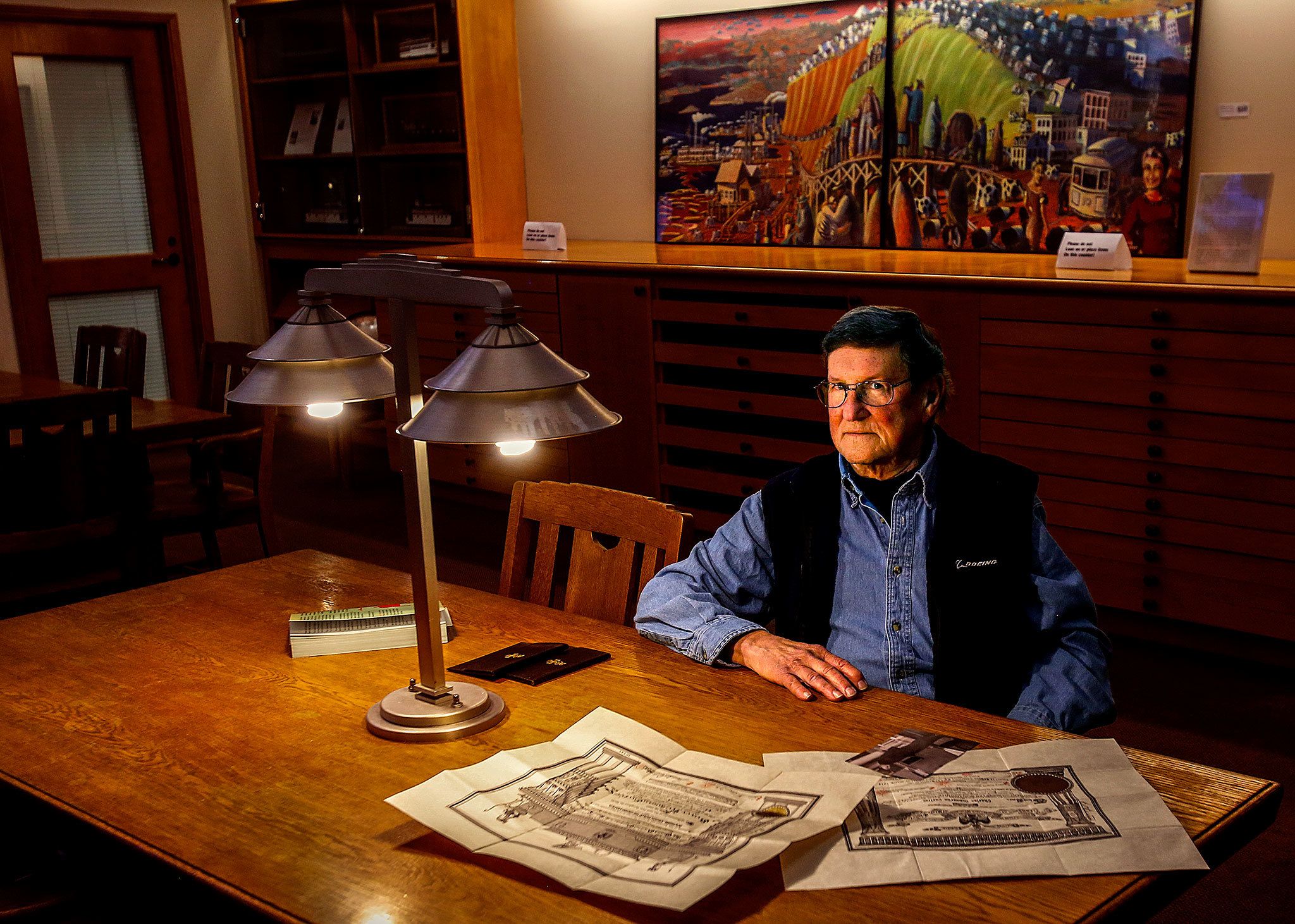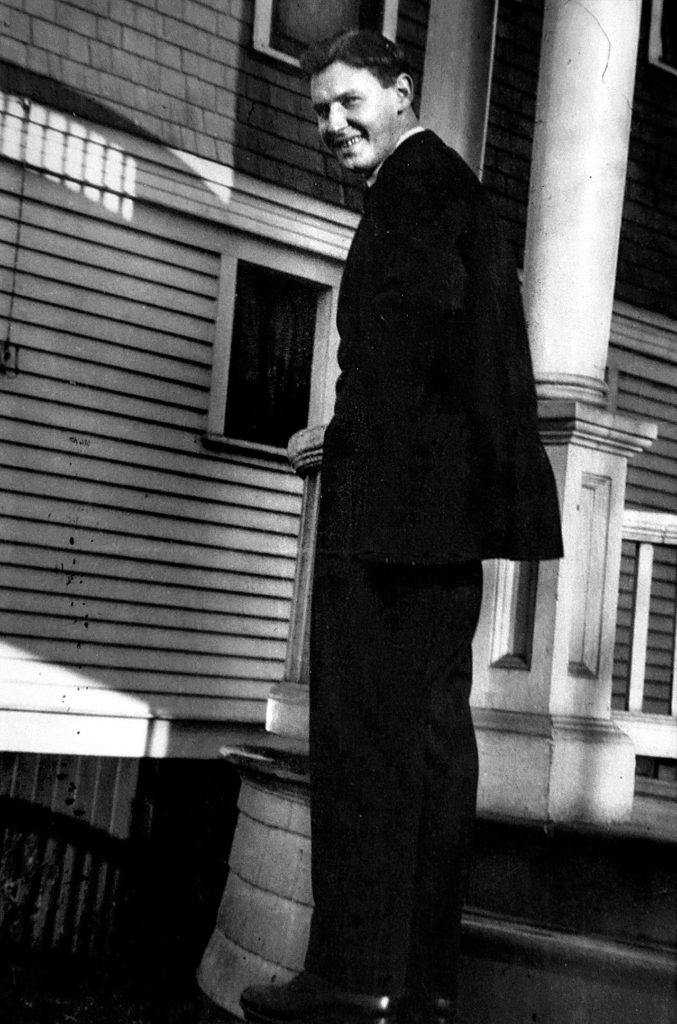As a boy, Frank Melder knew his grandmother as an educated woman of Seattle. Her friends were active in elite social circles. He remembers going to parties at a home near the city’s Volunteer Park.
The Marysville man’s grandmother, Grace Ridgway Curtiss, didn’t talk about Everett. Melder said his grandmother kept in her heart what it was like to lose her husband in the Everett Massacre.
“She never spoke about Everett,” said Melder, a 77-year-old Boeing retiree.
Grace Curtiss was a 29-year-old mother of three little girls on Nov. 5, 1916. That Sunday, weeks of labor strife exploded in a gunfight on Everett’s waterfront. Her husband, National Guard Lt. Charles Osbourne Curtiss, was among the dead.
The 35-year-old Curtiss was on Everett’s City Dock with Sheriff Donald McRae. By their side was Jefferson Beard, then a Snohomish County deputy but formerly the sheriff. They were backed up by dozens of armed townspeople. They confronted the Verona as the steam vessel arrived from Seattle carrying more than 200 Industrial Workers of the World members, known as Wobblies.
When the shooting stopped, at least five Wobblies — and likely six others who somehow disappeared in the bay — were dead. Beard, a 45-year-old father of four, died the next day.
Julie Rozell, of Camano Island, is Jefferson Beard’s great-granddaughter. Like Melder, Rozell, 53, said the massacre didn’t come up much in her family. Her late father, Chester “Bud” Beard Jr., ran Chester Beard Shoes, an Everett business started by his father in 1915.
“Bud knew about it, but it wasn’t brought up when I joined the family,” said Evelyn Beard, 80, Rozell’s mother and the widow of Chester Beard Jr., who died in 2008. “For Bud’s dad, it was a very hurtful time. He lost his father,” Evelyn Beard said.
Melder’s mother, Celia, the middle daughter of Charles and Grace Curtiss, was 6 when the shootings occurred. In 1916, the family lived in a big foursquare house on Hoyt Avenue. He said his grandmother did reveal that after the shootings, she felt threatened in Everett.
By early 1917, the young widow had moved her three daughters to Seattle, where she lived the rest of her life. Her daughters all attended the University of Washington, Melder said. In the 1950s, Melder’s grandmother operated the Reading Lamp Library, a small gift shop and lending library at East Thomas Street and 14th Avenue East in Seattle.
Grace Curtiss died in 1987. She was born Nov. 13, 1886, into an “old money” family of British heritage, Melder said. He believes Charles Curtiss became part of a “new money” Everett mill family. “He was a stepson,” Melder said.
“I was told that my grandfather had worked for Canyon Lumber,” Melder said. That business has been in Everett since 1907. Melder has certificates showing that his grandfather was a 32nd Degree Mason active in a local Masonic lodge.
After the massacre, Charles Curtiss’ mother quietly helped support her daughter-in-law’s family. Melder’s grandmother also worked as a seamstress. Grace Curtiss was just shy of her 101st birthday when she died. Her daughter, Charlotte Sthol, was 104 when she died in 2013 in Southern California. Melder’s mother, Celia, and the other sister, Eva, are also deceased.
“A lot of what I know is family hearsay,” Melder said. He has heard that when his grandmother tried to learn how Curtiss died, and whether “friendly fire” was involved, she was told “don’t push this.”
Rozell has learned to be skeptical of historical accounts. “Nobody reached out to us,” she said. The Beards’ voices aren’t in Norman Clark’s book “Mill Town,” despite the family’s roots in Everett, Rozell said. The 1970s book focuses on early Everett and the 1916 killings. The Beard family was interviewed by Denise Ohio, who made the documentary film “Verona,” Rozell said.
“A lot of factors played into what actually happened,” Evelyn Beard said. “There are two sides to everything.”
In 1998, the Washington State Law Enforcement Medal of Honor was awarded to Charles Curtiss and Jefferson Beard. It wasn’t until 2004 that the awards were presented to their families. The men’s names are also on the National Law Enforcement Officers Memorial in Washington, D.C.
A century after the Everett Massacre, Rozell is amazed by the event’s staying power. “It astonishes me it’s still so important to people,” she said. Melder thinks that won’t be so in another 100 years.
“Things fade into the background,” he said. “Life moves on.”
Julie Muhlstein: 425-339-3460; jmuhlstein@heraldnet.com.
Talk to us
> Give us your news tips.
> Send us a letter to the editor.
> More Herald contact information.


























